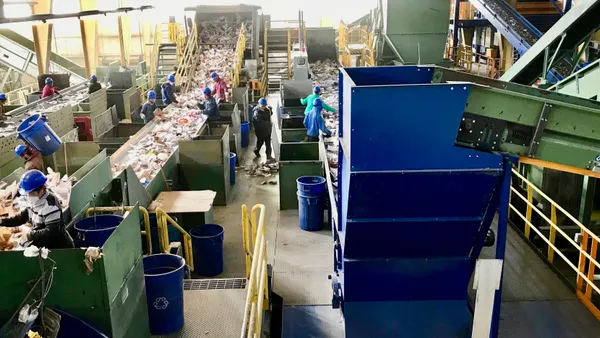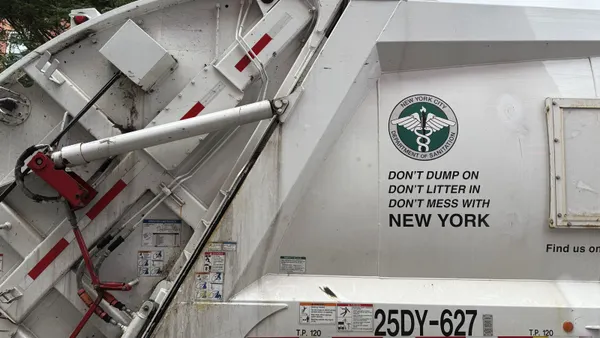Dive Brief:
- A recent study published by the Marine Pollution Bulletin analyzed debris collected along 28 beaches in five of Alaska's national parks in 2015, as reported by Alaska Dispatch News. The parks are Wrangell-St. Elias, Kenai Fjords, Katmai, Bering Land Bridge and Cape Krusenstern National Monument.
- The analysis found that polystyrene foam was the most common form of washed up trash by volume, yet it only accounted for 13.3% of the debris. 60% of beach debris was plastic, while 14.6% was rope and netting. Nonferrous metal items made up 1.7% of the collected debris. Pieces of iron and wood debris were not collected for the study.
- Researchers were also able to determine the sources of some washed up trash. One researcher noted it is likely that debris from Japan's 2011 earthquake and tsunami is still washing up on the coast of Alaska. Some debris also traced back to Thailand, China, Korea, Russia, Singapore, Argentina and South Africa.
Dive Insight:
In the summer of 2015, Gulf of Alaska Keeper started a $1.3 million cleanup project to remove debris along Alaska's coastline, much of which was attributed to the 2011 Japan earthquake and tsunami. However this new research indicating that a large portion of debris comes from a number of other countries — mostly in Asia — supports industry theories that countries in the Asia Pacific region need more support to tackle marine pollution.
Nonprofit organization Ocean Conservancy recently released a report, titled "The Next Wave: Investment Strategies for Plastic Free Seas," which detailed a goal to halve the amount of plastic waste entering the oceans annually in the next eight years. The report notes that rapidly developing economies and limited land space in Asia Pacific are contributing to the marine pollution crisis, and many organizations including the Asian Institute of Technology have joined to develop solutions.
At the 2016 Our Ocean conference, hosted by former Secretary of State John Kerry, dozens of other countries also committed to change through monetary investments in ocean cleanup projects. Panama, Germany and Lebanon were among the countries that made multi-million dollar commitments to marine protection, and now it is up to those countries' leaders to follow through on promises and work toward trash free waters.









